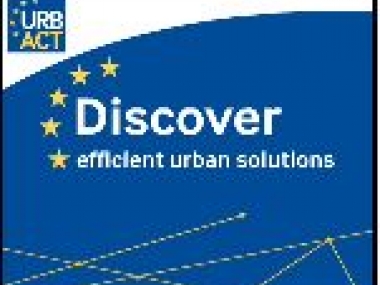New Results of URBACT Projects Now Available!
Edited on
09 October 201720 URBACT projects have completed their programme of exchange and learning activities. The project partners have been working relentlessly for three years looking for joint, effective and sustainable solutions to major urban challenges. These projects have brought to light solutions that have proven effective and providing valuable support for policy makers and practitioners involved in tackling these challenges. Each project has or will publish in the coming weeks its final publications and recommendations. Here is a look at the results, recommendations and outputs of two new projects!

LC-FACIL - facilitate the implementation of integrated sustainable urban development according to the Leipzig Charter
In May 2007, the Member States of the European Union adopted the Leipzig Charter and thus made a major political commitment in favour of the "sustainable European city". The Leipzig Charter aims to support an integrated approach to urban development through a focus on deprived neighbourhoods. In order to implement this charter in with real actions, in November 2008, the Member States decided to develop a Reference Framework for Sustainable European Cities. This project, proposed under the French presidency of the European Union Council, saw to the formation of working groups composed of representatives from Member States, European institutions and European networks of local authorities (MS/I group). Their goal is to develop a panel of tools to help local authorities and decision-makers to make strategic decisions. In order to ensure a correlation between these tools and local needs, it was also decided that a working group be formed composed of cities that could test in-field implementation of sustainable and integrated urban development that takes into account local, regional, national and European points of view. This is how the URBACT LC-FACIL project saw the day in September 2009.
Discover LC-FACIL results and recommendations!
RegGov - Regional governance of sustainable, integrated development of deprived urban areas
Integrated policies in the oldest European Union Member States have proven effective for the development of deprived urban areas. Yet, good practices and their development, implementation and funding are still rarely known at a wider European level. Crucial factors for success of such policies include cooperation and building a relationship of trust between cities and their Managing Authorities.
For three years, the URBACT RegGov project enabled nine cities to put these ideas into practice to develop new integrated strategies for sustainable urban development at a neighbourhood level. The project made 10 recommendations to implement effective multi-level governance for the integrated development of deprived neighbourhoods.
Discover RegGov results and recommendations!
Visit our new page displaying the results of the URBACT projects. It will be regularly updated with the final publications and recommendations of the URBACT projects closing their exchange and learning activities.
Read more:
- URBACT Projects Results - URBACT website
Submitted by admin on
